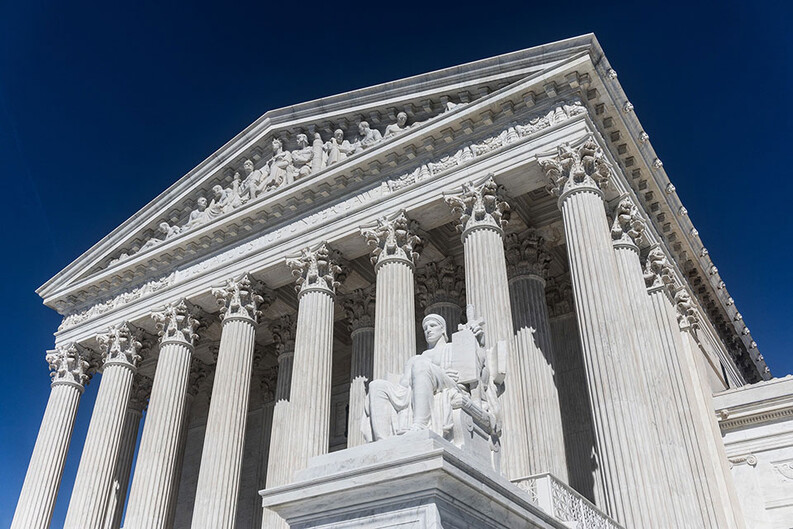Free Exercise Clinic’s Amicus Brief Quoted at SCOTUS Oral Argument

An amicus brief by the Yale Law School Free Exercise Clinic was quoted by Justice Brett Kavanaugh ’90 during oral argument before the U.S. Supreme Court earlier this term. Williams v. Washington, which challenges Alabama’s requirement that claimants exhaust state administrative remedies before bringing federal civil rights claims in state court, has drawn national attention for its implications on access to justice — including for religious minorities. The clinic’s brief, submitted on behalf of the American Hindu Coalition and the Islam and Religious Freedom Action Team, addressed the practical impact of Alabama’s procedural barriers on religious minority communities.
The amicus brief argued that allowing states to impose administrative exhaustion requirements on claims brought under Section 1983 and the Religious Land Use and Institutionalized Persons Act (RLUIPA) could functionally deny religious minorities access to the courts. By forcing claimants to navigate potentially biased or hostile bureaucracies — often controlled by the very officials whose decisions claimants seek to challenge — the process itself becomes punitive, according to the brief.
Justice Kavanaugh questioned Alabama’s solicitor general and pushed back on the idea that Alabama’s restrictions were “benign,” noting instead that “we have amicus briefs from a wide variety of groups, from ACLU and Public Citizen to religious liberty groups, to the Chamber of Commerce, all of which say that your rule will really hinder federal civil rights claims from getting into state court.” Quoting the clinic’s amicus brief, Justice Kavanaugh asked Alabama to respond to the contention that the State’s position would “grind religious litigants into submission before they are able to have their claims heard in court."
At the heart of the clinic’s argument is the principle that procedural rules should not be allowed to undermine federally protected rights. The clinic’s brief laid out a pattern that it supported with case law calling it troubling that local zoning boards and administrative tribunals used their discretionary authority to delay, deflect, or deny relief to religious groups — particularly those outside the mainstream. “Process-as-punishment,” as the brief calls it, can discourage claimants from asserting their rights at all, creating a chilling effect on religious expression.
The work of the Yale Free Exercise Clinic is conducted by Yale Law School students under the supervision of Yale faculty.
“The Court’s engagement with our brief demonstrates that thoughtful, well-researched student advocacy can shape the conversation about civil rights and religious freedom in America,” said Visiting Clinical Lecturer in Law Nick Reaves. “It’s a testament to the ability of law students to contribute meaningfully to the development of constitutional law.”
Students in the clinic collaborated closely with attorneys and their clients to prepare the brief, researching legal precedent and collecting examples of administrative discrimination.
For many of the students, the experience has been transformative. “Our work in Williams proved to us the immediate impact law students can have at every level of our legal system,” said clinic student Navid Kiassat ’26, who worked on the brief. “We thought it was important for the Court to better understand the impact its decision could have on religious exercise litigants, and we are grateful that the Court considered our arguments.”
In a 5-4 opinion authored by Justice Kavanaugh and issued a few months after the oral argument, the Supreme Court embraced the core logic of the clinic’s argument. The Court held that Alabama’s exhaustion requirement — by preventing plaintiffs from suing to challenge delays until those very delays had run their course — effectively immunized the state from a subset of Section 1983 claims. The Court explained that “[a] state law that immunizes government conduct otherwise subject to suit under §1983 is preempted, even where the federal civil rights litigation takes place in state court.” The Court thus reversed the Alabama Supreme Court’s ruling and reaffirmed that federal rights cannot be nullified by procedural hurdles — whether in federal or state court.


